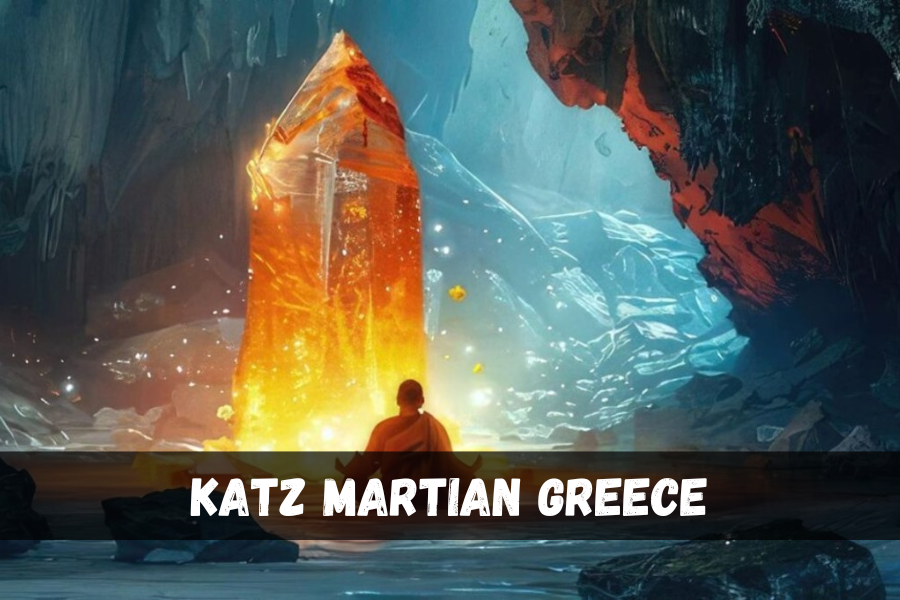The phrase “Katz Martian Greece” evokes a sense of mystery and curiosity, bridging the seemingly unrelated worlds of ancient civilization, modern art, and speculative ideas. To truly explore this concept, one must delve into various interpretations—ranging from artistic influences to potential cultural allegories—and piece together its significance.
Katz: A Name Steeped in Creativity and Innovation
The name “Katz” has appeared in multiple cultural and artistic contexts over the years. In modern times, it is often associated with creative individuals, including artists, writers, and thinkers. One notable figure is Alex Katz, an American painter renowned for his minimalist aesthetic and contributions to the Pop Art movement. Katz’s works often feature bold lines, vibrant colors, and a focus on human figures, making them stand out in the world of contemporary art. His influence could provide a starting point for understanding how “Katz” might be linked to the broader themes of creativity and expression.
Another layer to the name “Katz” might stem from its use in fictional or speculative contexts. For example, the idea of “Katz” as a character or entity often appears in science fiction or imaginative literature, adding an otherworldly or fantastical element to the mix. This association aligns intriguingly with the term “Martian.”
Martian: Science Fiction and the Allure of the Unknown
The term “Martian” immediately conjures images of extraterrestrial life and the red planet, Mars. Popularized by science fiction, “Martian” has become a shorthand for exploring the unknown, the futuristic, and the speculative. Iconic works like H.G. Wells’ The War of the Worlds and Ray Bradbury’s The Martian Chronicles have solidified the term in popular culture.
In a broader sense, “Martian” could also symbolize an outsider—someone or something that does not belong to the familiar world. This interpretation ties in with artistic expressions that challenge conventions or explore themes of alienation and identity. Could “Katz Martian” represent an artistic or philosophical perspective that views the world from an outsider’s lens? This interpretation opens doors to further exploration.
You Might Also Like: Webnet SDMC: A Comprehensive Overview
Greece: The Cradle of Civilization and Artistic Inspiration
Greece, often referred to as the cradle of Western civilization, is synonymous with profound contributions to philosophy, art, and culture. From the ancient ruins of Athens to the iconic sculptures of gods and heroes, Greece represents a wellspring of inspiration for countless creators.
In the context of “Katz Martian Greece,” the inclusion of Greece might signify a connection to classical art and mythology. For example, the interplay between human creativity and the divine—a hallmark of Greek art—could serve as a metaphor for the blending of traditional and futuristic themes. Additionally, Greece’s role as a hub of storytelling and drama aligns well with the speculative and imaginative aspects of the term “Martian.”
Potential Interpretations of “Katz Martian Greece”
1. A Symbolic Artistic Movement
One possible interpretation of “Katz Martian Greece” is that it represents an artistic movement or philosophy that bridges ancient traditions with futuristic concepts. For instance, an artist inspired by Greek mythology might reimagine the gods as Martians, blending classical aesthetics with science fiction elements. This approach could challenge audiences to reconsider the boundaries between the past and the future.
2. A Fictional Universe
Another interpretation could be that “Katz Martian Greece” is the name of a fictional universe or narrative. In this context, “Katz” might be a character, “Martian” a descriptor of their origin or perspective, and “Greece” a setting or thematic influence. Such a universe could explore themes of cultural intersection, identity, and the search for meaning.
3. A Metaphor for Cultural Fusion
“Katz Martian Greece” might also serve as a metaphor for the blending of diverse cultural elements. Greece’s historical influence on Western thought, combined with the futuristic and speculative connotations of “Martian,” could symbolize the evolution of ideas over time. “Katz” could represent the individual artist or thinker navigating this cultural synthesis.
Exploring Greece Through the Lens of “Katz Martian”
Ancient Greek Art and Its Modern Interpretations
Greek art has long been a source of inspiration for modern creators. The use of symmetry, balance, and storytelling in ancient sculptures and pottery continues to resonate with contemporary artists. In the context of “Katz Martian Greece,” one might imagine a modern reinterpretation of Greek motifs—perhaps depicting Martian landscapes or extraterrestrial figures in the style of classical Greek pottery.
Mythology and the Alien Perspective
Greek mythology is rich with stories of gods, heroes, and fantastical creatures. By introducing a Martian perspective, these myths could take on new dimensions. For example, the story of Prometheus bringing fire to humanity might be reimagined as an allegory for advanced Martian technology shared with ancient Earth. Similarly, the concept of Mount Olympus could be reinterpreted as a Martian stronghold, blending mythological and speculative narratives.
Philosophical Parallels
Greece’s philosophical legacy, particularly the works of Plato and Aristotle, offers fertile ground for exploration. The idea of Martians engaging in Socratic dialogues or debating the nature of existence adds an intriguing twist to classical philosophy. By framing these discussions within a Martian context, “Katz Martian Greece” could challenge traditional interpretations and invite new perspectives on timeless questions.
You Might Also Like: Discovering SifangDS: A Game-Changer in Modern Technology
Artistic Manifestations of “Katz Martian Greece”
Visual Art
Artists inspired by “Katz Martian Greece” might create works that blend classical techniques with futuristic themes. Paintings could depict Martian landscapes adorned with Greek columns, or sculptures might combine human and alien forms in a nod to hybrid identities.
Literature
In literature, “Katz Martian Greece” could inspire speculative fiction that explores the intersections of history, mythology, and the future. Novels or short stories might follow Martian explorers discovering ancient Greek ruins or humans encountering Martian artifacts that challenge their understanding of history.
Performance Art
Performance art offers another avenue for interpreting “Katz Martian Greece.” A theatrical production might blend Greek tragedy with science fiction, using innovative staging and technology to transport audiences to a hybrid world where the ancient and the futuristic coexist.
Cultural Significance and Broader Implications
The concept of “Katz Martian Greece” highlights the enduring relevance of cultural synthesis. By combining elements of history, art, and speculative fiction, it encourages audiences to think beyond traditional boundaries and consider how diverse influences shape our understanding of the world.
In a globalized society, the blending of cultural narratives—much like the fusion suggested by “Katz Martian Greece”—reflects the interconnectedness of human experience. Whether through art, literature, or philosophy, this concept invites us to explore the ways in which ancient traditions and futuristic visions can coexist and enrich one another.
You Might Also Like: FintechZoom FB Stock Analysis: A Deep Dive into Meta Platforms’ Performance
Conclusion
The concept of “Katz Martian Greece” encapsulates an imaginative fusion of art, culture, and speculative ideas. By bridging ancient Greek traditions with futuristic and Martian-inspired elements, it challenges conventional thinking and invites us to reimagine history, mythology, and creativity in entirely new ways. Whether as an artistic movement, a fictional universe, or a metaphor for cultural synthesis, “Katz Martian Greece” serves as a testament to the power of blending the familiar with the unknown. This intriguing nexus highlights the interconnectedness of human experience across time and space, urging us to explore the infinite possibilities of creativity and cultural exchange.
FAQs
1. What does “Katz Martian Greece” mean?
“Katz Martian Greece” represents a fusion of artistic and cultural elements, combining influences from Greek mythology, modern art, and speculative science fiction to explore themes of creativity, identity, and cultural synthesis.
2. Who is Alex Katz, and how is he related to this concept?
Alex Katz is a renowned American painter known for his minimalist style and contributions to the Pop Art movement. His artistic approach may inspire interpretations of “Katz Martian Greece,” emphasizing creativity and bold expression.
3. How does the term “Martian” relate to Greek culture?
The term “Martian” symbolizes the futuristic and the unknown, while Greek culture embodies ancient traditions and mythology. Together, they create a unique blend of past and future, inspiring imaginative reinterpretations of classical themes.
4. Is “Katz Martian Greece” an artistic movement?
While not an established movement, “Katz Martian Greece” can be seen as a conceptual framework for exploring artistic ideas that merge classical and speculative elements.
5. How could “Katz Martian Greece” inspire artists and writers?
Artists and writers can draw inspiration from this concept by blending Greek motifs with futuristic or extraterrestrial themes. This could manifest in visual art, literature, or even performance art, creating works that challenge and expand traditional narratives.
6. What cultural significance does “Katz Martian Greece” hold?
“Katz Martian Greece” reflects the importance of cultural synthesis, showing how ancient traditions and futuristic visions can coexist and inspire innovative perspectives on art, philosophy, and identity.
Stay connected for the latest news and updates on LET MAGAZINE Best Regards!



